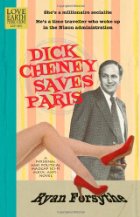"I don't know many happy people. What are they like?" ~Meg Tilly as Chloe in The Big Chill
There is an interesting branch of social psychology that studies happiness and what makes people happy. Is it true that money can't by happiness? Children make us happy? Marriage makes us happy? Religion? I have been to several presentations on the origins and truth about what makes people happy. I find them infinitely fascinating as the topic of who is happy and why they are happy seems to come up frequently in my life. I am reminded that even our own Declaration of Independence bases itself squarely on the side of the pursuit of happiness.
This new book, The Happiness Equation: The Surprising Economics of our Most Valuable Asset by Nick Powdthavee, studies happiness now from an economic standpoint. The author is an economist by training and attempts to translate economic studies on happiness from economics journals to studies and stories that the rest of us can use and follow. Most of it asks and answers interesting economic questions about the pursuit of happiness.
In general, much of it reads like an economics primer and would be interesting if you followed economics news and had a head for the vagaries of the study of the economy. I was a C student in economics, and it often made my head swim, so I was perhaps not the best early reviewer for this book. Parts that piqued my interest most of all were the discussions on the happiness factor of parenthood (really none of us is very happy) and the fact that perhaps we have an overblown sense of the right to be happy. Some people prefer to pursue a more interesting life rather than a pleasurable one. The books asks, who makes us think that we have to be happy?
I was also pleasantly interested in the discussion about the ability of a government to coerce their people into doing things that will make them happy through the right kind of policies and legislation and marketing. Have you ever heard of libertarian paternalism?--now there's an oxymoron. And of course no book on the study of happiness would be complete without a look at the famous country of Bhutan whose monarch actually put into place the idea of GDH-Gross Domestic Happiness. Who cares about the product when what you really want is to make the people happy. Really?
I close this post with the fond memory of one of my favorite Peanuts cartoons. Charlie Brown and Linus are discussing the meaning of life. Linus says, I think we were put on this earth to make others happy. To which Charlie Brown turns to the skies, raises his fist and yells, "Someone is not doing their job!"
The Science Behind Christmas Cracker Jokes
4 days ago





